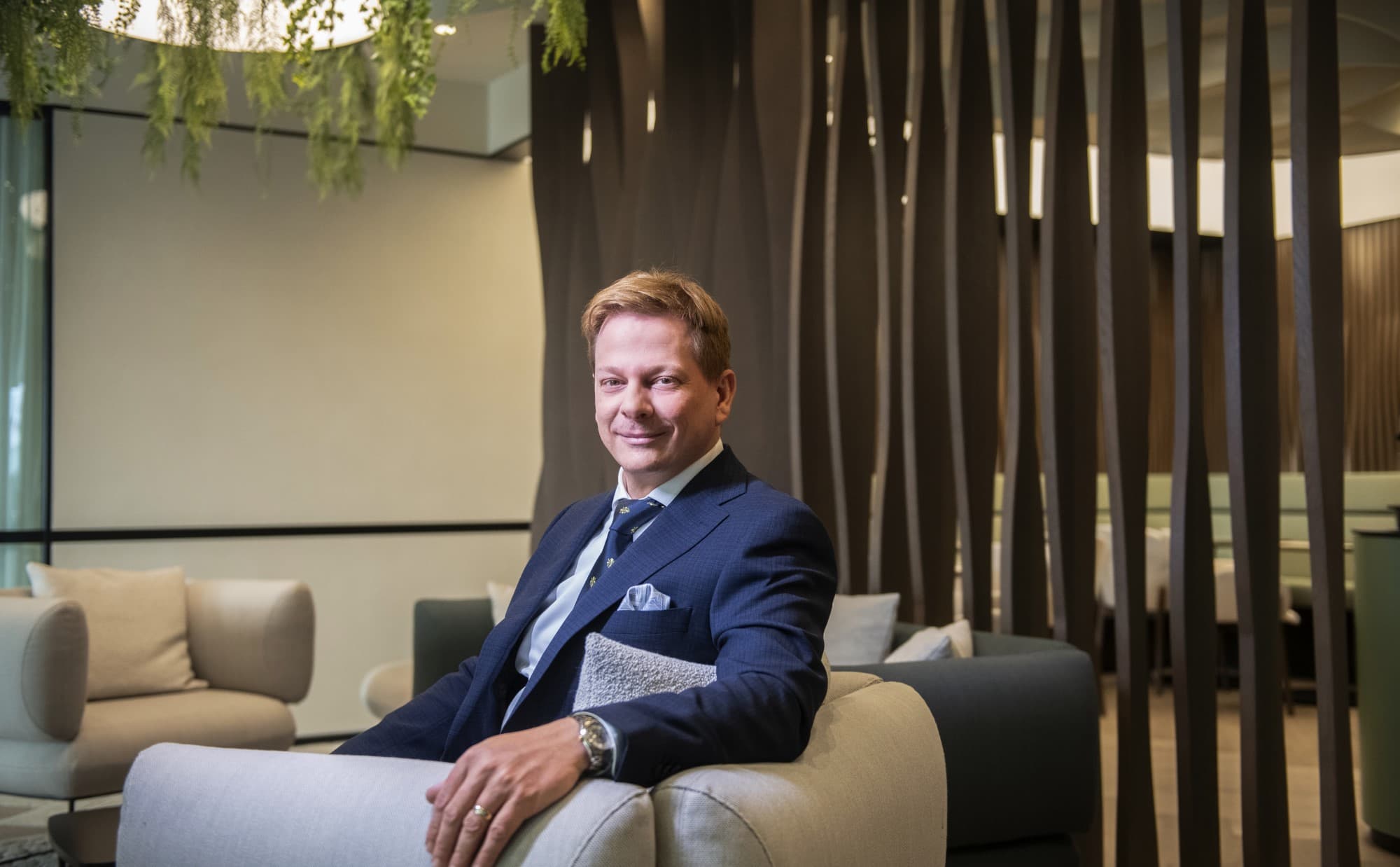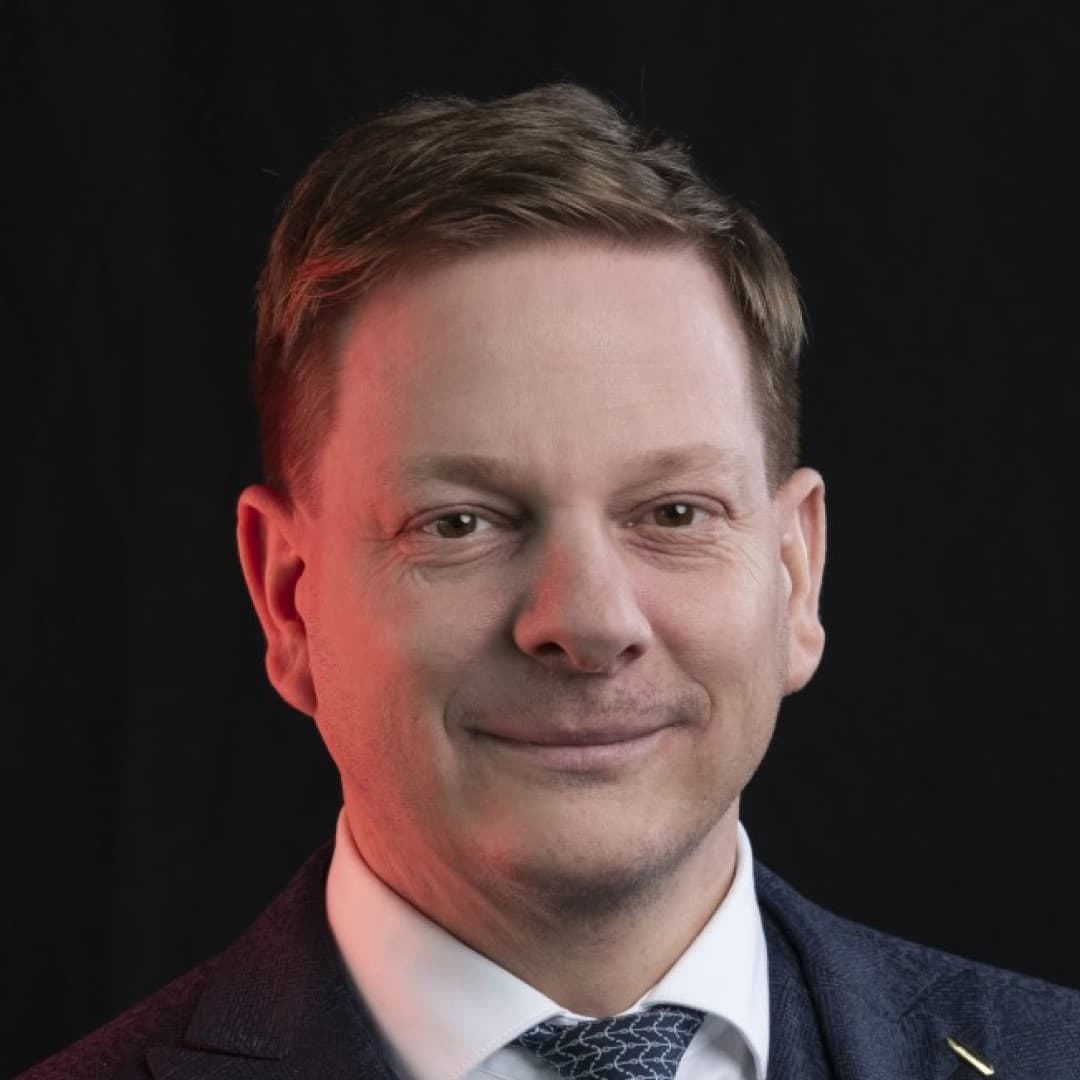We want to showcase ideals and seek allies for them.
03 \ 12 \ 2024

Donorship should be much more about individual patronage than corporate promotion, says Petr Michal, partner at the law firm Portos, on the topic of philanthropy. The Bohemian Heritage Fund, whose founders include the creators of Portos, has already contributed over seventy million CZK to the arts. Portos is also involved in other key projects in Czech culture.
Your law firm has had a year full of changes. How do you evaluate it?
PM: This year concentrated the energy accumulated over the last several years. The most significant change was rebranding from Císař, Češka, Smutný to Portos. Now, nine months after the rebranding, the period before that seems like a part of a distant past. The strategic transformation was challenging, but we endured it and continue to strengthen in key areas. We redefined what is important to us and how we can elevate relationships with clients to the next level.
What has changed?
PM: The values underlying our work have remained the same. However, the range of our services has significantly expanded. We realized that our work aligns more with the concept of Strategic Legal Advisory, and we decided we want to be perceived as a broader brand—a bigger “house” where different professions, not only lawyers, offer their services. We also came to understand the need to change our self-presentation and brand perception to attract the best talents on the market and offer them room for growth. Pavel Smutný, one of our three founders, was a great support and had a strong influence on this process. Unfortunately, he unexpectedly passed away in May.
How has your range of services changed?
PM: The classic external view of law practice is associated with the idea that a lawyer defends and represents a client in court. This view simplifies advocacy to court disputes and proceedings. However, besides court cases, there are many other types, such as administrative proceedings. For example, large developers often use lawyers for representation in building permit processes. The broader public often does not perceive this possibility. With our rebranding, we tried to name what is already happening in practice—the market increasingly expects us to provide comprehensive orientation in the legal and regulatory environment in which clients operate.
PM: This includes not only participation in court proceedings but also involvement in decision-making processes that precede these disputes. This area covers, for example, tax advisory, compliance processes, and meeting legislative requirements now imposed on company management. Our company, Portos, has long been engaged in these areas, and this is where we build strong relationships with our clients. We have more than twenty clients with whom we have cooperated for over twenty years.
And how are you active as analysts?
PM: Besides the above, we focus on strategic advisory, which includes analyzing the environment in which our clients do business and recommending how to move effectively within it. This involves overall evaluation of impacts, for example, in the area of state green policy, which significantly affects industrial sectors like petrochemicals, railway industry, or automotive. Our goal is to support clients in their engagement in public discussions through legal means.
This year you won three categories at the Law Firm of the Year: Wealth Management, Corporate Law, and Pro Bono & CSR. Why were you successful precisely in these areas?
PM: For the first time, we won in Wealth Management. We have intensively focused on this area for about the last ten years. During that time, we managed to establish ourselves domestically and internationally. Wealth management and trust law accounted for about one-eighth of our total activities last year. Equally important for us is corporate law, which has been the backbone of our work for more than thirty years, and we grew to our current size largely thanks to it. And then there is Pro Bono & CSR, which is recognition of our long-term philanthropic activities, whether through the Bohemian Heritage Fund or other support primarily of Czech culture.
How do you think business in the Czech Republic is doing regarding effective philanthropy?
PM: Philanthropy, as often perceived, is a distinctly American phenomenon. It is associated with the ability of a philanthropist to actively influence their surroundings, whether a community, city, or municipality. This approach also allows them to distinguish themselves and present themselves more prominently. An additional factor is the tax deductibility of these donations, which can be a key motive for many philanthropists. Besides that, there are truly large and authentic initiatives such as the Kennedy Center Foundation, Carnegie Foundation, or Rockefeller Foundation, which represent a genuine legacy. However, it must be admitted that a significant part of philanthropists may be motivated more by directing their funds to specific projects they can personally endorse rather than contributing to the state budget.
PM: This is not about abuse of the law but rather a deliberate direction of funds according to their own preferences. This concept is not yet deeply rooted in the Czech Republic and Central Europe. Our preference is for individual patronage rather than corporate promotion. We believe individuals have the heart and energy to bring positive change and that it is better to avoid masked corporate presentation. Philanthropy should be genuine, not a means of exaggerated promotion. Our role is to show ideals we want to share and find allies for them.
What have you supported this year through the Bohemian Heritage Fund (BHF)?
PM: One of the highlights of the year was the sculptural installation by top choreographer Jiří Kylián in front of the New Stage of the National Theatre. The fund symbolically adopted three of his statues that capture dancers’ movement statically, and they are now exhibited alongside others in the Czech Club at the Municipal House. Our collaboration continues with the Prague Proms festival and the Czech National Symphony Orchestra. Our relationship with the orchestra reflects an effort to help, as we see their difficult situation without state support. A special chapter is projects like the St. Vitus Organ Foundation, in which Pavel Smutný was strongly involved. This project managed to gather funds for organ acquisition from both large and small contributors across the country. Similar to the past with the National Theatre, it is an example where the aim is not donor publicity but lasting contribution.
You also support the construction of the Ostrava concert hall…
PM: Our involvement is a natural continuation of the experience gained from the St. Vitus organ project. Currently, only three such projects of this kind are underway in the Czech Republic—the St. Vitus organ, the Ostrava concert hall, and the Janáček Cultural Centre in Brno. We are engaged in all these projects to some extent. In Brno, we are developing deeper cooperation, while in Ostrava we are fully involved. Our goal is to help Ostrava fulfill its dream as soon as possible. We appreciate proven, quality projects—whether new cultural buildings, music festivals like Smetanova Litomyšl, or leading institutions and ensembles such as the Czech Philharmonic or Collegium 1704.
What is your vision for the Czech Republic in 2025? What will most influence our country next year?
PM: The Czech Republic is in a difficult situation influenced by a cumulation of problems long postponed or ignored in the hope that they would resolve themselves. On the other hand, I believe this could trigger the positive energy needed for a fundamental change. The year 2025 could bring a realization that the green transition or the shift to a service economy will not save us by themselves. The Czech Republic cannot be a high value-added country just because it politically decides so—circumstances will force this change. Historically, it has already been shown several times that the Czech Republic can find a way forward in tough times. Reluctantly, I believe that this period of shortage will force us to act and stop merely talking about change.




